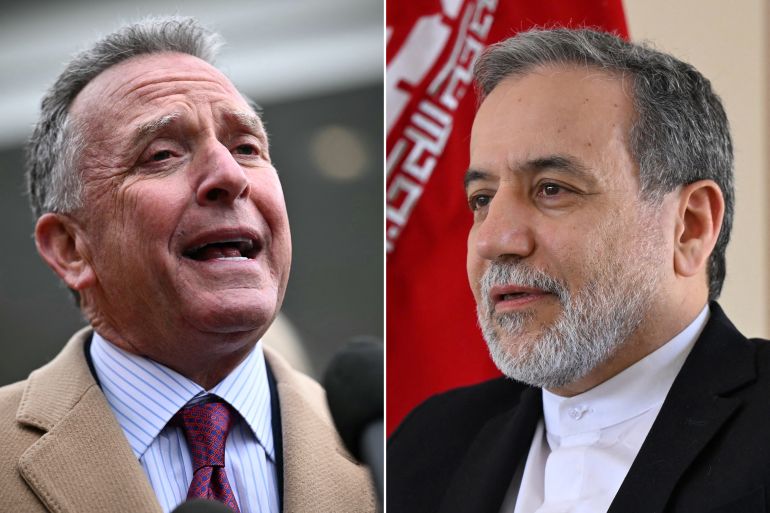Iran Considers Nuclear Armament Amid Conflict with Israel
It’s clear that the recent conflict between Iran and Israel over the course of 12 days has caused Iran to reassess its security and deterrent strategy, possibly leaning towards nuclear armament. This reassessment might be linked to the belief that possessing a nuclear weapon could have prevented the Israeli attack that took place on June 13, 2025. Lesson from countries such as North Korea and Pakistan could have helped shape this perspective as these nations perceived their nuclear weapons as safeguards against potential assaults.
Following the case of North Korea and Pakistan, should Iran have been a nuclear state, some argue the situation might have unfolded differently. The presence of a nuclear weapon might have acted as a deterrent, possibly averting a nuclear strike from an enemy state. However, contemplating the reality of such a possibility has complex ramifications.
While the ceasefire between the battling countries might provide a reprieve, it’s uncertain that this will lead to a durable peace. The inherent complexities and deeply rooted issues related to the Palestinian conflict suggest that a long-term solution remains elusive. As long as key issues such as Gaza, Lebanon, and the West Bank persist, the likelihood of achieving an unfettered peace in the Middle East becomes more challenging.
The importance of a two-state solution in addressing these issues cannot be overstated. Nevertheless, even such a solution does not guarantee an absolute resolution to all conflicts in the region. Achieving peace, especially in a region riddled with deep-seated issues such as the Middle East, indeed requires multifaceted approaches and continued dedication.
The recent 12-day war, though intense, was thankfully brief and did not descend into a drawn-out battle. However, this fleeting clash raises significant questions about the necessity of such a war in the first place. As history repeatedly shows, war often leaves scars that take generations to heal, and this encounter will likely be no exception.
In the wake of the temporary ceasefire, an evaluation from both sides reveals a mutual interest in maintaining the ceasefire – not due to any inherent benevolence, but out of self-interest. For instance, Israeli premier Benjamin Netanyahu declared that two major objectives had been reached: halting Iran’s nuclear program and neutralizing the threat posed by Iranian ICBMs.
Debates among scholars on Middle Eastern issues indicate an interesting paradox: Should Iran secure a nuclear weapon, it might contribute to maintaining the region’s stability. These scholars argue that the shared apprehension of the devastation resulting from nuclear warfare could deter everyone involved from resorting to such weapons, thus paradoxically enforcing a form of peace.
An additional argument in favor of Iran procuring a nuclear weapon posits that this might induce a shift in Iran’s approach towards Israel. Instead of a focus on eliminating Israel, Iran could turn its attention to fostering its own socio-economic progression. Consequently, the presence of a nuclear arsenal might offer Iran a unique opportunity to reevaluate its priorities and redirect resources towards constructive measures.
However, the goal of engendering a radical change in the governing regime of Iran supported by Israel and the US has been largely unsuccessful. Despite the challenges it faces, Iran’s regime has proven its resilience and adaptability, repelling attempts at restructuring. Such a forced transition could have alarming prospects, as evidenced by previous examples from Syria and Iraq.
The aftermath of regime change, as demonstrated in these nations, often results in a power vacuum, leading to severe social disagreements within the country and, in some cases, outright civil strife. Such situations often spiral into a state of civil war, adding to the complexity of any geopolitical resolution. Therefore, forced regime change is hardly a solution to the existing issues with Iran.
Finally, an important consideration is the prospect of Iran using a nuclear weapon, should it acquire one. Given the magnitude of such an action, and the destructiveness it carries, many believe that Iran would not be so reckless. Despite the contrary narrative, Iran isn’t a country with a death wish, and it’s probable that its leaders share the same rational fear of total annihilation as any other country.
Thus, while Iran’s acquisition of a nuclear weapon would certainly alter the Middle East’s geopolitical landscape, the picture is more complex than it initially appears. With this in mind, it’s crucial for all parties involved to strive for diplomatic channels and pursue peaceful resolutions to conflict over temporary victories through warfare.
It is an intricate and sensitive issue, requiring careful diplomatic maneuvering and deep understanding. The Middle East’s future and peace are intertwining with a myriad of factors, and the careful balance of power, democracy, and respect for sovereignty and human rights all play a vital role. The recent Israel-Iran conflict offers valuable lessons and reminders about this intricate balance.

